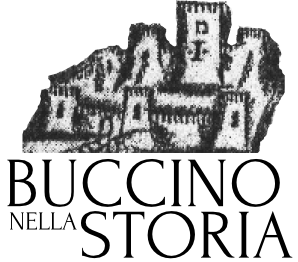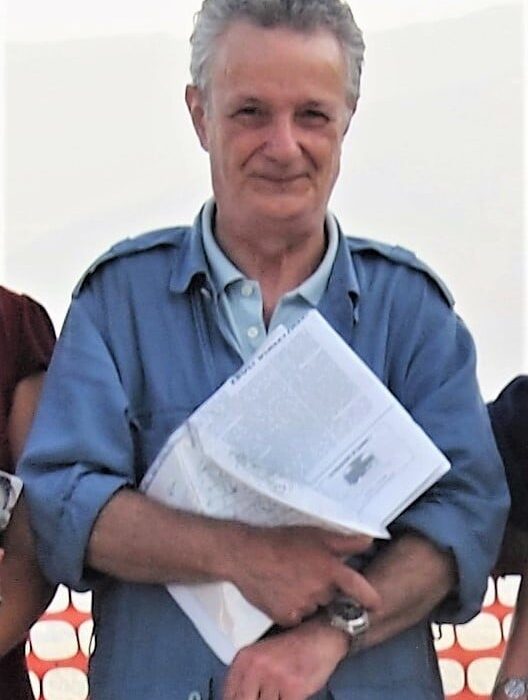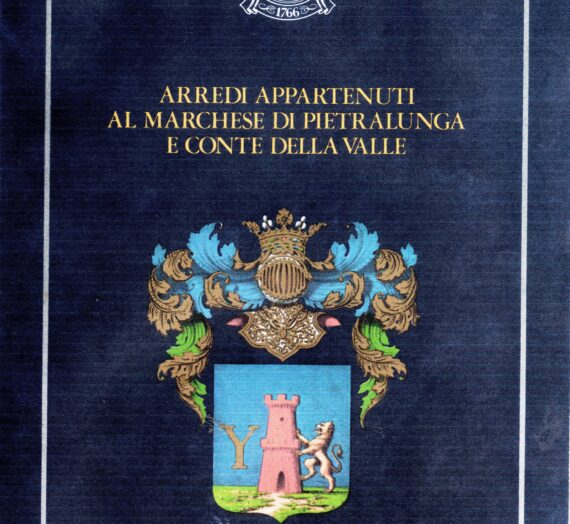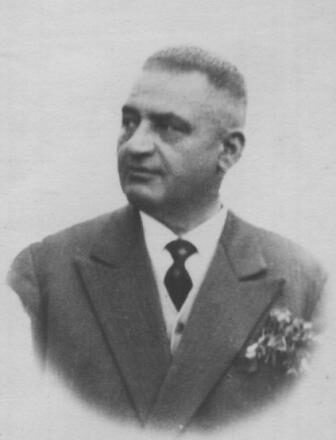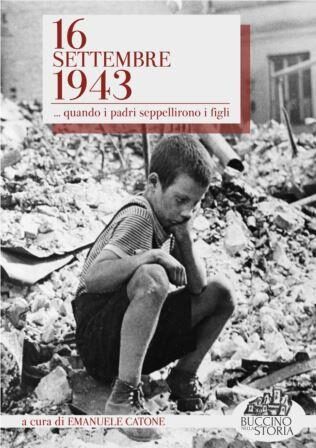Peppino Arduino has left us, suddenly and prematurely, the 20 April after a brief and inexorable illness.
Affection, the esteem and sympathy that the Buccinese community had for him, despite the difficulties associated with this terrible pandemic, they manifested themselves in a wide and sincere manifestation of "virtual" condolences for his disappearance. I write these few notes to prevent all this from being lost in the mare magnum of news that floods our reality and quickly ends up in oblivion.
A dear friend of hers, Professor Maria Rosaria Pagnani rightly wrote of his death: «The culture of our South has lost its protagonist, Buccino has lost its historical memory, many of us have lost a friend ". Summarizing the thinking of many of us, Professor Pagnani has in fact well expressed the sadness of those who appreciated her work and her sincere passion for culture, which characterized his entire life, but also of those who have had the privilege of sharing other more convivial moments with him and of enjoying his company.
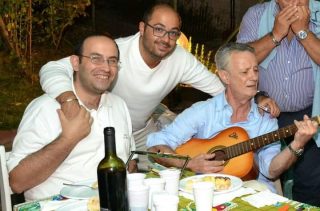
Already somewhere else I have underlined how with Peppino the main protagonist of Buccino's cultural life from the 1970s to today disappears. It seems fair to me to draw some here, on a portal dedicated to the history of Buccini, a quick profile of him and some personal remembrance reflections.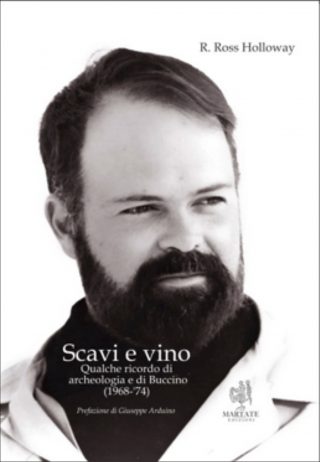 Still a young student, in fact, he had a passion for archeology and the history of Buccino. Several times he recounted the pleasant moments spent together with the archaeologists of American universities, led by Robert Ross Holloway and then by Stephan L. Dyson, in the excavation campaigns carried out in the Buccinese area between the end of the 1960s and the middle of the following decade (which he then recalled also promoting the publication in recent years Excavations and Wine, a memory of Holloway from his stay in Buccini), or its presence in the excavations conducted in the same period at the Sports Field by the Archaeological Superintendence of Salerno under the direction of Venturino Panebianco, in whose study at the Provincial Archaeological Museum - he told me - he had then spent many hours in the following years when he studied the grave goods found in the Buccine excavations. In those years he conducted a fundamental investigation in the territory of Buccino and in the surrounding ones that were part of the ancient ager Volceianus in order to identify and file the epigraphic testimonies e
Still a young student, in fact, he had a passion for archeology and the history of Buccino. Several times he recounted the pleasant moments spent together with the archaeologists of American universities, led by Robert Ross Holloway and then by Stephan L. Dyson, in the excavation campaigns carried out in the Buccinese area between the end of the 1960s and the middle of the following decade (which he then recalled also promoting the publication in recent years Excavations and Wine, a memory of Holloway from his stay in Buccini), or its presence in the excavations conducted in the same period at the Sports Field by the Archaeological Superintendence of Salerno under the direction of Venturino Panebianco, in whose study at the Provincial Archaeological Museum - he told me - he had then spent many hours in the following years when he studied the grave goods found in the Buccine excavations. In those years he conducted a fundamental investigation in the territory of Buccino and in the surrounding ones that were part of the ancient ager Volceianus in order to identify and file the epigraphic testimonies e 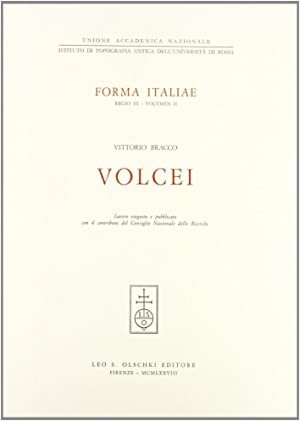 still existing archaeological sites. He was an invaluable collaborator of the scholar Vittorio Bracco who in 1978 published the volume Volcei - the first to highlight the archaeological importance of the ancient Volceian territory - in which most of the files and information collected by Peppino converged: certainly a very valuable work for the future multi-year study activity undertaken by the Archaeological Superintendence of Salerno starting immediately after the earthquake, which led to the birth of the Urban Archaeological Park and the National Archaeological Museum of Volcei. It was Peppino himself, together with the late Marcello Gigante and Bracco, to make an extensive presentation in the church of S. Antonio and to take care of the precious booklet in which the reports by Bracco and Gigante held on that occasion were published.
still existing archaeological sites. He was an invaluable collaborator of the scholar Vittorio Bracco who in 1978 published the volume Volcei - the first to highlight the archaeological importance of the ancient Volceian territory - in which most of the files and information collected by Peppino converged: certainly a very valuable work for the future multi-year study activity undertaken by the Archaeological Superintendence of Salerno starting immediately after the earthquake, which led to the birth of the Urban Archaeological Park and the National Archaeological Museum of Volcei. It was Peppino himself, together with the late Marcello Gigante and Bracco, to make an extensive presentation in the church of S. Antonio and to take care of the precious booklet in which the reports by Bracco and Gigante held on that occasion were published.
In those same years - he told me - he also dedicated himself to the precious reorganization of the historical archive of the Municipality, unfortunately definitively interrupted by the destruction of the earthquake of 23 novembre 1980. After the earthquake, that changed the face of our town forever, he dedicated himself with even greater commitment to saving the historical memory of our community that without his commitment at that moment would have been irretrievably lost. His commitment to saving photos was invaluable, documents and objects recovered in the houses of the historic center damaged by the earthquake, that would surely be lost. Equally fundamental was it, before and after the earthquake, his activity of photographic documentation of the heritage, essential for anyone who deals with and will deal with the history of Buccino in the future and who has repeatedly allowed the rescue or recovery of objects of art after the numerous thefts suffered by the churches and the Municipality in the post-earthquake guilty neglect of the civil and ecclesiastical authorities, of which he was for a long time the only one to understand and publicly denounce the seriousness. I remember, for example, the theft of the frontal of the main altar of the church of S. Antonio who, stolen in 2000, it was found the following year by the Carabinieri thanks to a photo of him.
Peppino, indeed, has not failed to highlight several times in his writings and articles the absolute importance of preserving the historical and artistic heritage of Buccino, almost always remaining unheard: if much has been done with regard to archaeological evidence, for the subsequent historical-artistic heritage, Peppino's concerns and exhortations still remain absolutely valid.
He did not fail to follow with interest the first phase of the systematic excavations conducted by the Superintendency in Buccino immediately after the earthquake under the guidance of the late superintendent Werner Johannowsky; already in 1985 for this purpose he took care of editing the first of his publications dedicated to aspects of Buccinese archeology, the volume Volceiana published by the Municipality, of which he was the author together and to the same superintendent e, Once again, al prof. Giant. He would later dedicate his other works to the theme, among which we remember above all the volumes Vici, farms e meetings in the ancient territory of Volcei. Balvano – San Gregorio Magno (1997), A statuette of Hercules found in Buccino (2014), The Tabvla censvalis by Volcei. Contribution to the study of landed property in the late ImperO (2016). In his traveling Volceianum (2015), finally, he would have condensed all the news on the Volceian territory in a virtual “walk” in the historic center. His interest in archeology and epigraphy was therefore accompanied by his interest in the historical-artistic events of Buccino churches and monasteries and the deepening of some fundamental moments in the history of our community, I am thinking first of all of the complex story of banditry, not neglecting also to make some "forays" into the historical events of the surrounding towns of Salerno and Basilicata.
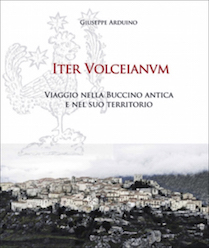
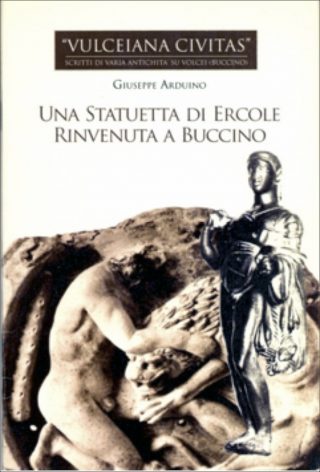
Peppino was a unique character. There won't be another Peppino, with his refined speech and overflowing culture, with his encyclopedic knowledge of history and culture, not just Buccinese, with his "steel memory" as he always liked to say. Culture was the constant point of reference throughout his life and he dedicated all his energies to it; careful and precise scholar, unfortunately he loved to conduct his studies in a solitary and shy way and this prevented him from obtaining all the awards, also professional, that its broad culture would have deserved.
Peppino, indeed, he never transformed his study passions into a job and the stimulus that guided him throughout his life was the pleasure of spreading culture and knowledge, without ever asking for anything in return, among those who had the desire, the pleasure and the opportunity to listen to him in his lengths, thorough and erudite discussions (his youth friends therefore called him affectionately trapanatio mentis). The young Mario Panzarella, remembering him in a post on the occasion of his disappearance, rightly wrote of him as a "Free Master" and "a free hitter of Culture". 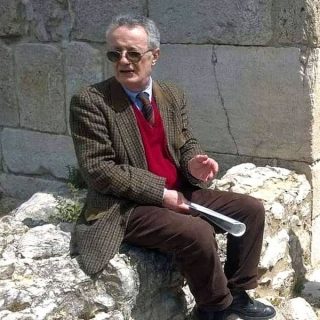 What is certain is that Peppino, until the last two articles appeared a few weeks before his disappearance, he devoted his entire life to studies on local history, first of all Buccinese, dealing with it in its various aspects (archeology, epigraphy, art history, events and characters). We were able to appreciate some of the fruits of his research work, above all thanks to his precious articles published over the years in local newspapers (I emphasize in particular, in recent years, his ongoing collaboration with the periodical "The Voice of Buccino”) and its volumes, unfortunately few, most recently published, which constitute a precious heritage and an essential starting point for those who deal with it (and will take care) of the story of Buccino.
What is certain is that Peppino, until the last two articles appeared a few weeks before his disappearance, he devoted his entire life to studies on local history, first of all Buccinese, dealing with it in its various aspects (archeology, epigraphy, art history, events and characters). We were able to appreciate some of the fruits of his research work, above all thanks to his precious articles published over the years in local newspapers (I emphasize in particular, in recent years, his ongoing collaboration with the periodical "The Voice of Buccino”) and its volumes, unfortunately few, most recently published, which constitute a precious heritage and an essential starting point for those who deal with it (and will take care) of the story of Buccino.
Knowing Peppino, his infinite thirst for knowledge and his enormous intellectual curiosity, I'm sure other contributions, equally valuable, remained in the drawers of his desk of his beloved home-studio in via Provinciale and that he could still add a lot to the historical knowledge of our territory.
The figure of Peppino remains and will remain as a warning of the importance of studying, know and preserve the different aspects of our local culture. A commitment that I too have embraced for some years and I owe him a lot for this too: without his studies, with related stimuli, perhaps I would never have come close to studying the history of our community.
I still remember with affection and satisfaction the words of appreciation that he wanted to publicly express for my initial study on the history of the convent of S. Antonio, which I published years ago in the magazine of the Italian Augustinians, when in the "review" of my essay, published in the "Voce di Buccino" in the summer 2013, full, his goodness, underline my skill and professionalism, writing: "the author […] obviously falls outside the ranks of "scholars", all of which without any necessary competence and doctrine, they begin to deal with historical issues with ease, then arrogating to himself the presumption of proving irrefutable facts and truths ". Even then I announced to him the publication of a larger volume of mine on the Augustinian complex, for which he manifested a certain satisfaction and curiosity; I'm sorry you won't be able to read the book, now almost ready for printing.
Commitment, for the enhancement of the local history of Buccino, which I will continue to pursue as a sign of gratitude for Peppino and honor to his memory. As a further sign of affection and gratitude for Peppino, I will then also undertake to collect and republish in volume the precious articles that he has published over the years in various locations and which must not be lost: I think it is the best way to remind the Buccinesi of today and tomorrow.
Dear Peppino, I respected you professionally and I loved you. I will miss our "learned" conversations. After your disappearance, I feel a little more alone. Thanks for everything.
Emanuele Catone
